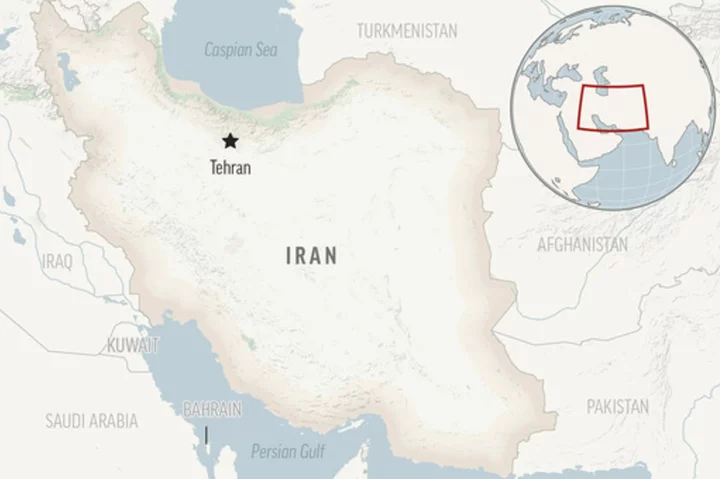When an airline in the Middle East was recently inundated with 16,000 applications for several cabin crew roles, it turned to artificial intelligence to sift through the resumes and select the most promising candidates.
An AI-powered chatbot then emailed forms to around 1,000 of the best applicants and — based on their answers to key questions — whittled the list down even further. In the end, the company was left with fewer than 500 people, or 3% of applicants, to interview for the positions.
What would have taken a large human resources team days to accomplish was achieved within minutes using AI. Recruitment Smart, the company that developed the software, calls it SniperAI, a tribute to its speed and precision.
From recruitment and real estate, to customer service and coding, generative AI — which refers to the technology underpinning such platforms as ChatGPT — is driving astonishing productivity gains: enabling software engineers to code at twice their usual speed, helping researchers complete a week's worth of work in a single morning and doing the work of 250 people answering customer emails.
Recruitment Smart's SniperAI predated the release of ChatGPT and other consumer generative AI tools.
"In the next few years, the main impact of AI on work will be to help people do their jobs more efficiently. That will be true whether they work in a factory or in an office," Microsoft founder Bill Gates wrote in a blog post Tuesday.
Experts say the technology will help address a steep and prolonged slowdown in productivity growth in many Western economies, which has kept businesses' costs higher than they would otherwise be and made inflation harder to tame.
"AI has huge potential to increase productivity," BlackRock CEO Larry Fink said at the company's Investor Day last month. "It may be the technology that can bring down inflation."
Speaking to CNN, Erik Brynjolfsson, director of the Digital Economy Lab at Stanford University, added that AI could have impacts "equal to or even greater than" earlier so-called general purpose technologies, "because it seeks to address intelligence, which is a very fundamental input for production."
As the latest general purpose technology, AI will affect nearly every sector and occupation, the Organisation for Economic Cooperation and Development said in a report Tuesday.
Like the steam engine, which ignited the industrial revolution, and electricity, which spurred dramatic advances in manufacturing and communication, AI "can be used pervasively across many industries and to foster general productivity gains," the OECD said.
Low productivity, high inflation
An uplift in output can't come soon enough. Feeble growth in productivity — most commonly measured as gross domestic product per hour worked — has hamstrung many advanced economies since at least the 2008 global financial crisis. Reasons include aging populations and the trend toward "deglobalization," or a weakening of trade and investment ties between countries.
The productivity problem is only becoming more urgent as tight labor markets push up wages.
"If wages rise by more than productivity, then... it costs more to make the same amount of output, and that can cause inflation," David McMillan, a professor in finance at the University of Stirling in Scotland, told CNN.
On the other hand, when a workforce is more productive it produces more goods and services, and at a lower cost per unit. "This means there is a greater supply of these things, which puts downward pressure on prices and is therefore associated with lower inflation," McMillan wrote recently in The Conversation.
At 5% to 7%, pay rises in the United States and Europe now far outstrip annual average productivity growth, which has been languishing at or below 1.5% since the mid-2000s, according to official statistics.
Ultimately, that's bad news for workers. "In the long run, sustained real wage gains can only be ensured through sustained productivity growth," the OECD said in its report, noting a recent reduction in workers' purchasing power as high inflation erodes pay.
In the United Kingdom, the Office for National Statistics estimated that if productivity had continued growing by 2% a year between 2012 and 2022 — rather than by 0.2%, its actual growth rate around the same time — it would have meant an extra £5,000 ($6,400) per worker per year on average in extra pay.
The only way to raise productivity is to increase the volume of goods and services an economy can produce. That's where AI comes in.
The promise of AI
Right now, Wimbledon, the world's oldest tennis tournament, is using AI tools developed by IBM to automatically generate match highlight reels, saving its editorial team countless hours. For the first time this year, highlights will also include AI-generated commentary.
This means the tournament's organizers will be able to do more with the same number of workers.
With its promise to turbocharge labor, AI could increase the global economy's ability to produce goods and services, decreasing prices and making wages go further.
"Think of it as analogous to the increase in the global supply of labor following China's integration into the world trading system, but this time with software taking the role of humans," Capital Economics group chief economist Neil Shearing wrote in a note this week.
In a recent paper, Brynjolfsson, Martin Neil Baily, senior fellow emeritus in economic studies at the Brookings Institute, and Anton Korinek, an economics professor at the University of Virginia's Darden School of Business, anticipate a doubling in the rate of US productivity growth over the next decade thanks to AI, taking it back to levels last seen in the 1990s and early 2000s when America experienced a computer-powered productivity boom.
Productivity gains in Europe could be similar, albeit slightly smaller, Brynjolfsson told CNN.
Already, companies including IBM, Microsoft, Google and a host of smaller rivals such as SAP and Salesforce are racing to integrate the technology into their products, used by millions of businesses and workers around the globe. Microsoft describes this as having a "Copilot" to enhance your work.
Widespread adoption of AI-powered tools could drive a 7%, or $7 trillion, uplift to global GDP and raise productivity growth by 1.5 percentage points over a 10-year period, according to researchers at Goldman Sachs.
In some cases, productivity gains could be achieved sooner. That's because most generative AI tools live on the internet — "the technology we already have on our desks" — making them widely accessible, Brynjolfsson said.
AI is also very user-friendly because all it essentially requires is for the user to be able to speak and write.
"For both those reasons, I anticipate this AI revolution is going to be much more compressed" than earlier breakthroughs such as the invention of electricity, which took decades to transform economies, Brynjolfsson said. "Instead of decades it's going to be years and in some cases months."









